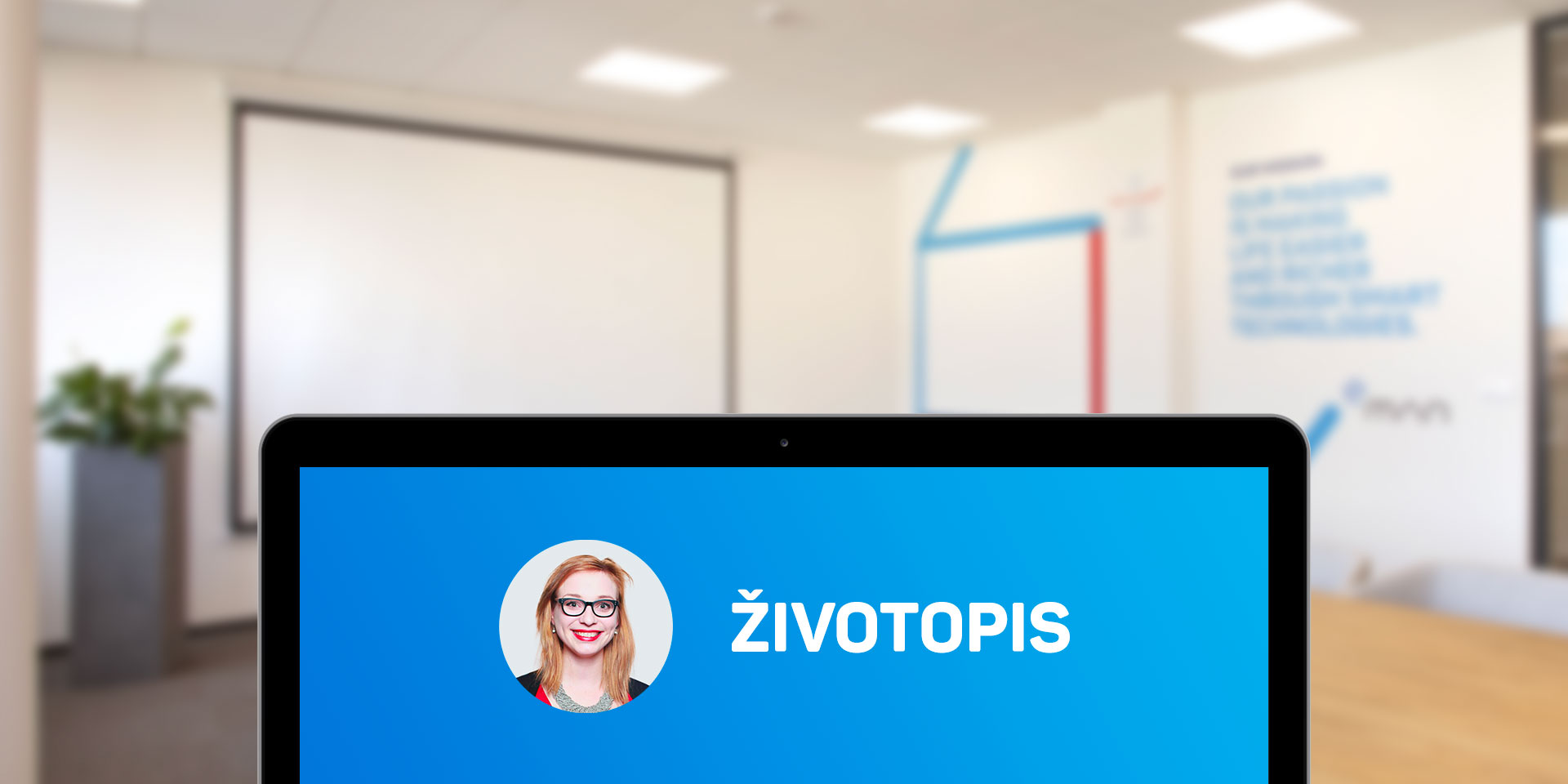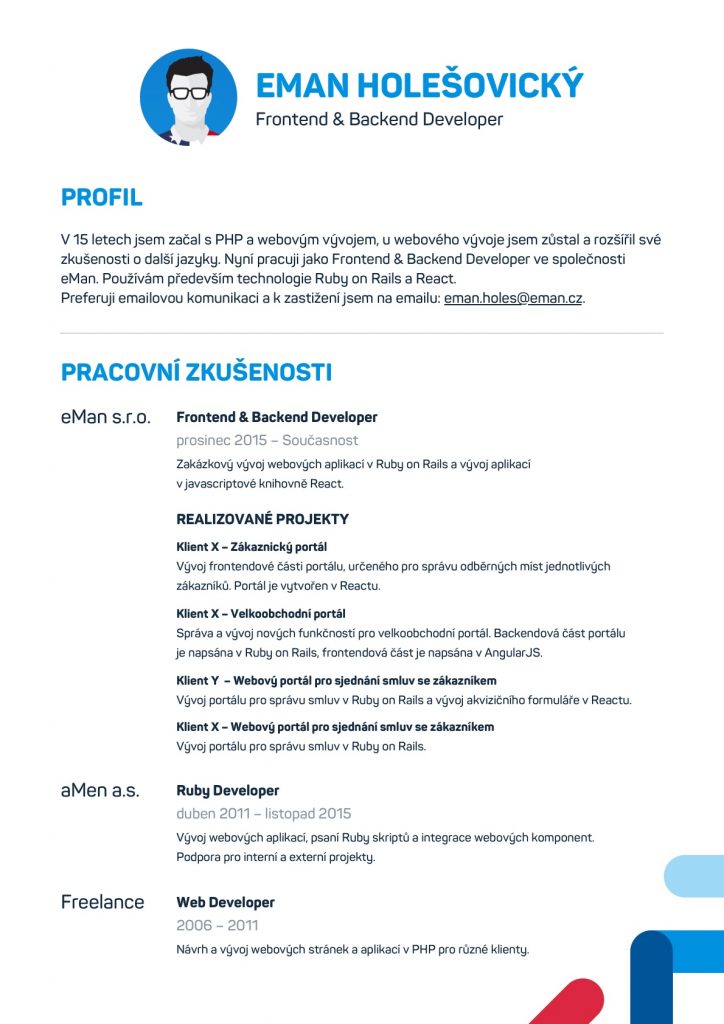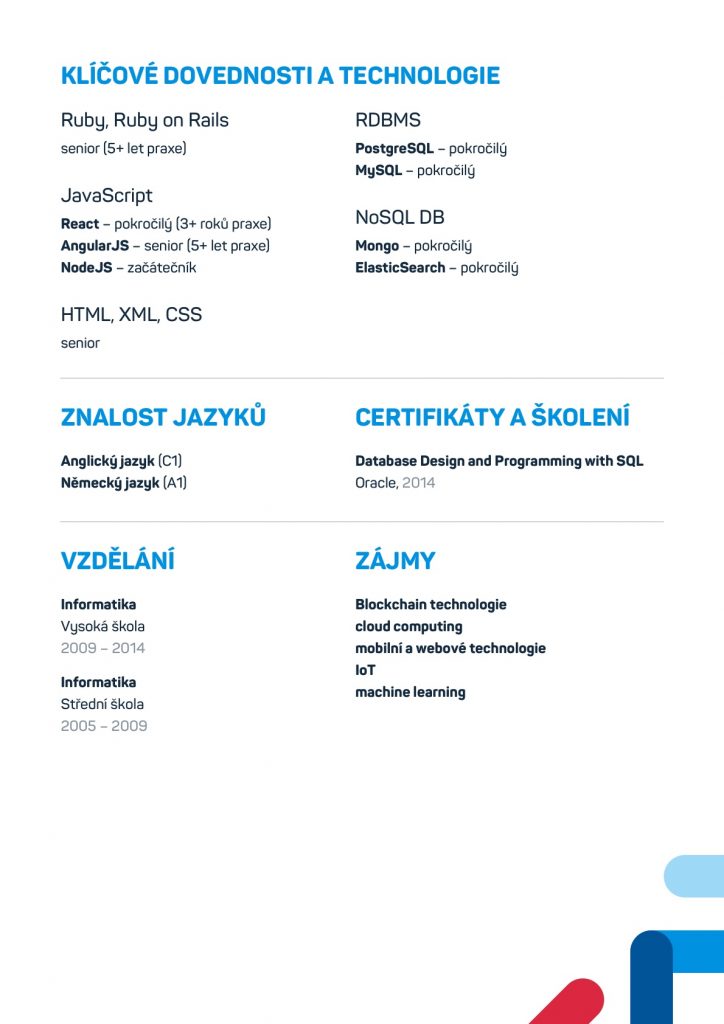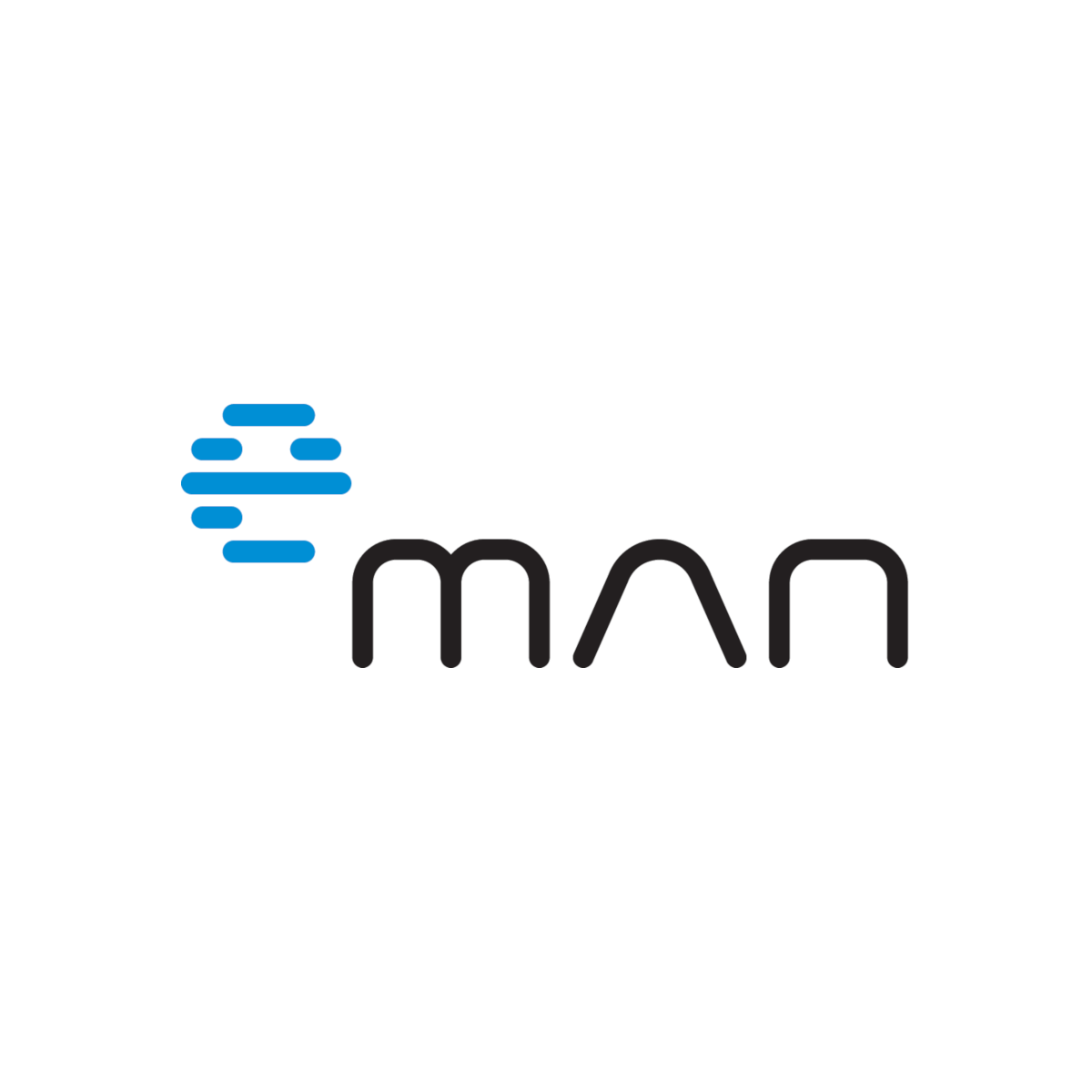What should I, as a Developer, put in my CV? That’s a question we all ask, no matter if we just finished school, or already have solid work experience in the field. Is a Curriculum Vitae even needed? And what to do about me really, really, not wanting to talk over the phone? Our IT recruiter presents a few tips from her everyday work.
IT Recruiter presents: Awesome tips for you CV

You won’t find a complete CV writing guide here. Why? Just google it. There are about 310,000,000 results presenting this topic. What we’ll tell you is what to actually put in your CV as a Developer.
What to put into a CV as a Developer?
So why do companies ask you for a CV? It’s to find out what experience and skills you have. For example, here at eMan, we receive up to three hundred applications a month, from interns and experienced developers to enthusiasts who have decided to try out programming. And that’s awesome, because we have something to offer all those groups. But it’s still quite useful to know a bit about each other before our first meeting.
I personally don’t even need a CV. A clear and up to date LinkedIn profile is enough for me to get to know the applicant a little better. The profile is online, and your colleagues or managers can write you a reference. And you can also download and export the CV to a PDF, which can be sent in place of a classic CV.
Creating a LinkedIn profile doesn’t necessarily mean that you’re looking for a job. It’s a social network, which can keep you up to date with recent news or events. In Settings, you can toggle an option enabling the viewing of your profile to only your direct connections. But if you do so, no headhunter can contact you.
If you just finished school and have no work experience, list the projects you have worked on, and ideally provide a sample or a link. On the other hand, if you have plenty of work experience, but you didn’t finished school, simply say so. You can state that you studied university for three years, but did not manage to pass your final exams because you were busy with your project.
For IT, it is important to list all technologies you know. And don’t forget to state your knowledge level, be it advanced or beginner. The more information you provide, the better. This goes for everyone, whether they’re developing a website, frontend, backend, mobile apps, or databases.
Remember that recruiters are also people. And we usually don’t know much about programming, nor understand all technologies in detail. Sure, everyone knows Java is not JavaScript jokes. But don’t be mad at us for asking if you’d like to do backend in NodeJS, even though your CV states five years of experience in development using Angular. If you don’t write it down, it can’t help you.
Don’t be afraid to include the preferred channel of communication in your contact details. If you don’t like calls, just note that you want to be approached via email. If you enjoy calls, write down the best times during which you can be reached. One thing I strongly recommend is having a neutral, presentable, email address. Aliases like maleficient.dark.angel@domain.com or muffin.soup@domain.com simply don’t give a good impression.
Do you still have questions? Just let me know, I’d be glad to help.
Zuzana Klímová
Zuza is responsible for recruiting our new colleagues at eMan. She enjoys finding awesome job opportunities for experienced IT specialists. And she’s really good at it! You can also find her on LinkedIn.


